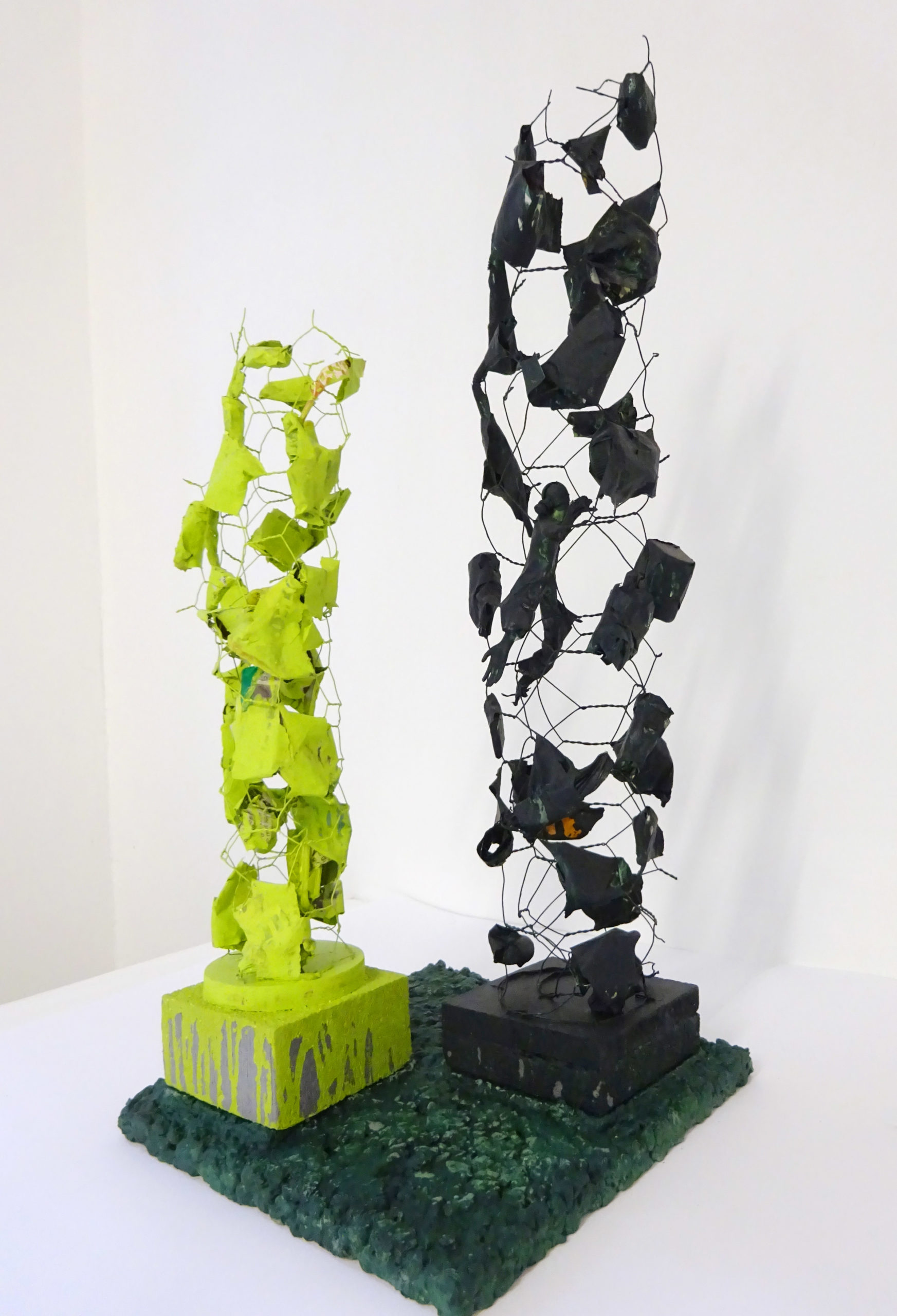Rivals
Original by José Alcántara Almánzar
Translated, from the Spanish, by Luis Guzmán Valerio

The other one—her equal—was the only one who knew the secret. As long as they could maintain a certain appearance of splendor and hide the truth, they were both joyful allies, twin sisters who together endeavored to provoke the admiration of all. Every day, when they had privacy, they contemplated one another ecstatically for hours, returning one another’s approving gestures and smiles. Whenever the authentic one raised her right hand to style her hair or put on perfume, her copy imitated her to a t with her left hand. If she closed one eye to apply eye shadow, the other one, with an identical gesture, closed the opposite eye. The implacable executioner, time, having no pity, took it upon itself to extinguish that fictitious brilliance. Then began a cruel competition between her, the real one, and the other, the fake one without a life of her own, who now threatened to reveal the secret. Conscious of the fact that fighting against the other one –her double– meant the start of a blatantly senseless cold war, she wanted to speed up the process by destroying her dangerous enemy instantly. With a heavy object, she hit the potential denouncer right in the face, breaking her into a thousand quicksilver pieces that scattered all over the dresser and onto the floor, taking with them the secret of the assassin’s age.
Rivales
La otra—su igual—era la única que conocía el secreto. Mientras pudieron mantener cierta apariencia de esplendor y ocultar la verdad, ambas fueron aliadas gozosas, hermanas gemelas que juntas afanaban para provocar la admiración general. Todos los días al encontrarse en la intimidad se contemplaban extáticas durante horas, devolviéndose los mismos gestos y sonrisas de aprobación. Cuando la auténtica levantaba la mano derecha para adornarse el pelo o perfumarse, su copia la imitaba al pie de la letra con la mano izquierda. Si cerraba un ojo para aplicarse sombra, la otra, con un idéntico ademán, cerraba el opuesto. Ajeno a la piedad, el tiempo –verdugo inconmovible– se fue encargando de apagar aquel brillo ficticio. Entonces empezó una cruel porfía entre ella, la verdadera, y la otra, la falsa sin vida propia, que ahora amenazaba con revelar el secreto. Consciente de que luchar contra la otra –su doble– significaba entablar una guerra fría a todas luces insensata, quiso acelerar el proceso destruyendo en el acto a su peligrosa enemiga. Con un pesado objeto golpeó a la potencial delatora en plena cara, rompiéndola en mil pedazos azogados que se desparramaron por el tocador y el suelo, llevándose el secreto de la edad de la victimaria.
José Alcántara Almánzar began his writing career in 1973 with the publication of the short story collection titled Viaje al otro mundo. He has published over twenty essay and short story collections. His most recent publication is the collection Memoria esquiva published by Editorial Santuario earlier this year. Outside of the Dominican Republic, his work in Spanish has appeared in Bulgaria, Colombia, Cuba, Mexico, Puerto Rico, Spain, and the United States. In 2018, Lizabeth Paravisini-Gebert published, with Cecilia Graña, Where the Dream Ends, a selection of Alcántara Almánzar’s short stories in English translation. His work has also appeared in French, German, Italian, and Icelandic translations. In addition to several other awards, Alcántara Almánzar was awarded the Dominican Republic’s Premio Anual del Cuento [Annual Short Story Prize] on two occasions: in 1984 for the collection Las máscaras de la seducción and in 1990 for La carne estremecida. In 2009 he was presented with the Premio Nacional de Literatura [National Prize for Literature]. However, despite several awards in the Dominican Republic and a book length translation in English, his work remains largely unknown to readers in the United States.
Luis Guzmán Valerio holds a Ph.D. in Latin American, Iberian, and Latino Cultures from The Graduate Center at the City University of New York and an M.A. in Translation from the University of Puerto Rico, Río Piedras Campus. Luis has recently published literary translations in Delos: A Journal of Translation and World Literature, BODY Literature, Five:2:ONE, and in the Translators’ Corner of the Instituto Cervantes.
Sabatin Bascoban lives and works in Portsmouth, United Kingdom. He completed his Fine Art studies with a BFA at the University of Applied Sciences and Arts, Hannover, Germany. Thereafter, he obtained the ‘Meisterschüler’ title, while studying for a year with the sound artist Professor Ulrich Eller as his mentor. As a sculptor, he makes mixed media objects. In his sculptures and assemblages, he frequently combines plastic and polystyrene parts with clay, wood and concrete. His works are exhibited throughout the UK as well as abroad.
